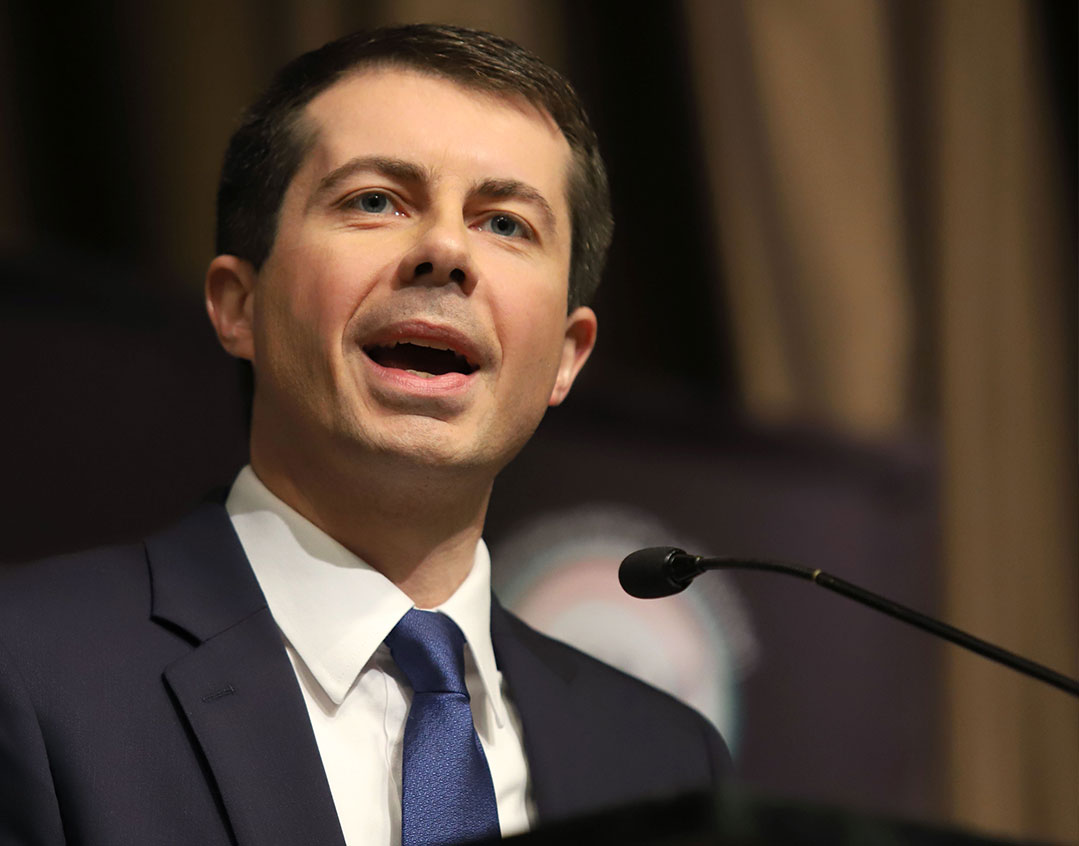Mayor Pete Speaks His Mind

South Bend mayor Pete Buttigieg is one of the biggest surprises of the 2020 presidential race

L
ast Thursday, noon. Into the offices of Bluelight Strategies, a communications firm on Connecticut Avenue, walks South Bend mayor Pete Buttigieg, one of the biggest surprises of the 2020 presidential race. Nearly anonymous before his announcement in April, he is now polling fifth among Democratic hopefuls.
Democratic operatives Steve Rabinowitz and Aaron Keyak organized the event, an ongoing series with Democratic candidates, to expose leading members of the Jewish community to their positions and policies.
“We would like to know where all the presidential candidates are on the issues that are most important to us as a community,” Rabinowitz explained.
Buttigieg made news at the meeting when he told attendees that the United States needed to “guide” Israel toward better policy decisions. In the past, he has criticized Prime Minister Binyamin Netanyahu for floating a plan to annex settlements on the West Bank.
“The right approach comes about when you have an ally or a friend [who] is taking steps that you think are harmful, and you put your arm around your friend and try to guide them somewhere else,” Buttigieg told the 40 attendees. “That’s part of how our alliance works. And I think American leadership is needed, in particular, with respect to our ally Israel at a moment like this.”
Buttigieg added that the United States “doesn’t have the right kinds of partners” on the Palestinian side and spoke glowingly of a recent trip to Israel. Rabinowitz praised Buttigieg for his familiarity on the Israel issue. “He did not study for it in the car ride on his way to the event here,” he said. “He had opinions that he had considered and thought about. And I respect that a lot.”
Rabinowitz suggested that Buttigieg’s views on Israel fall within the American Jewish mainstream. “No American Jews or lovers of Israel want to hear about pressure on Israel unless it also comes with pressure on the Palestinians,” he said. “Most Jews don’t mind the idea of pressure on both sides in order to resolve their differences, come to the bargaining table, make compromises, make a deal.”
Rabinowitz found it noteworthy that many of the attendees focused on the Israel issue. In general, Rabinowitz admits, Jews in the United States don’t really vote for a candidate based on his or her approach to the Jewish state. “A few of them do, but most of them do not. Except when there’s a crisis or a major [development in] Israel that is different from the everyday. If there’s a war, G-d forbid, then it becomes much more important.”
American Jews increasingly think that Israel has done a good job of taking care of itself, Rabinowitz explains, and the Jewish state does not rank high on the list of the Jewish American voter’s priorities.
One reason, he says, is the alienation that the non-Orthodox sectors feel toward Netanyahu and the government.
“This government and previous Bibi coalitions have been extremely alienating of the majority of the American Jewish community, and this is catching up with it for sure,” he said. “There is maybe 10% of the American Jewish community for whom Israel is perhaps the single most important issue, and that is the issue on which they make their decisions.”
“I hope they don’t. It’s not warranted, and there’s no basis for it, but something tells me they’re going to do it because they’re just determined to go after the president and not do what’s best for the country. They got these memorandums of understanding, secret agreements between the various chairmen, their coordinated attack on the president. It’s just wrong. But unfortunately, that’s where they want to go.”
Rep. Jim Jordan, a Republican of Ohio, told Mishpacha he hopes Democrats aren’t going to try to impeach the president.
(Originally featured in Mishpacha, Issue 762)
Oops! We could not locate your form.













